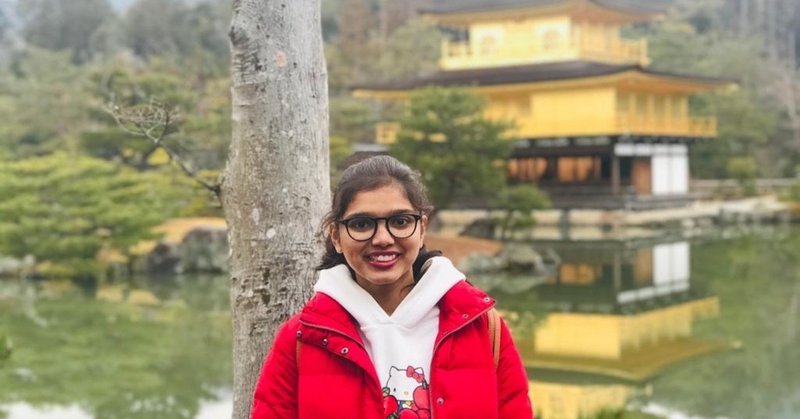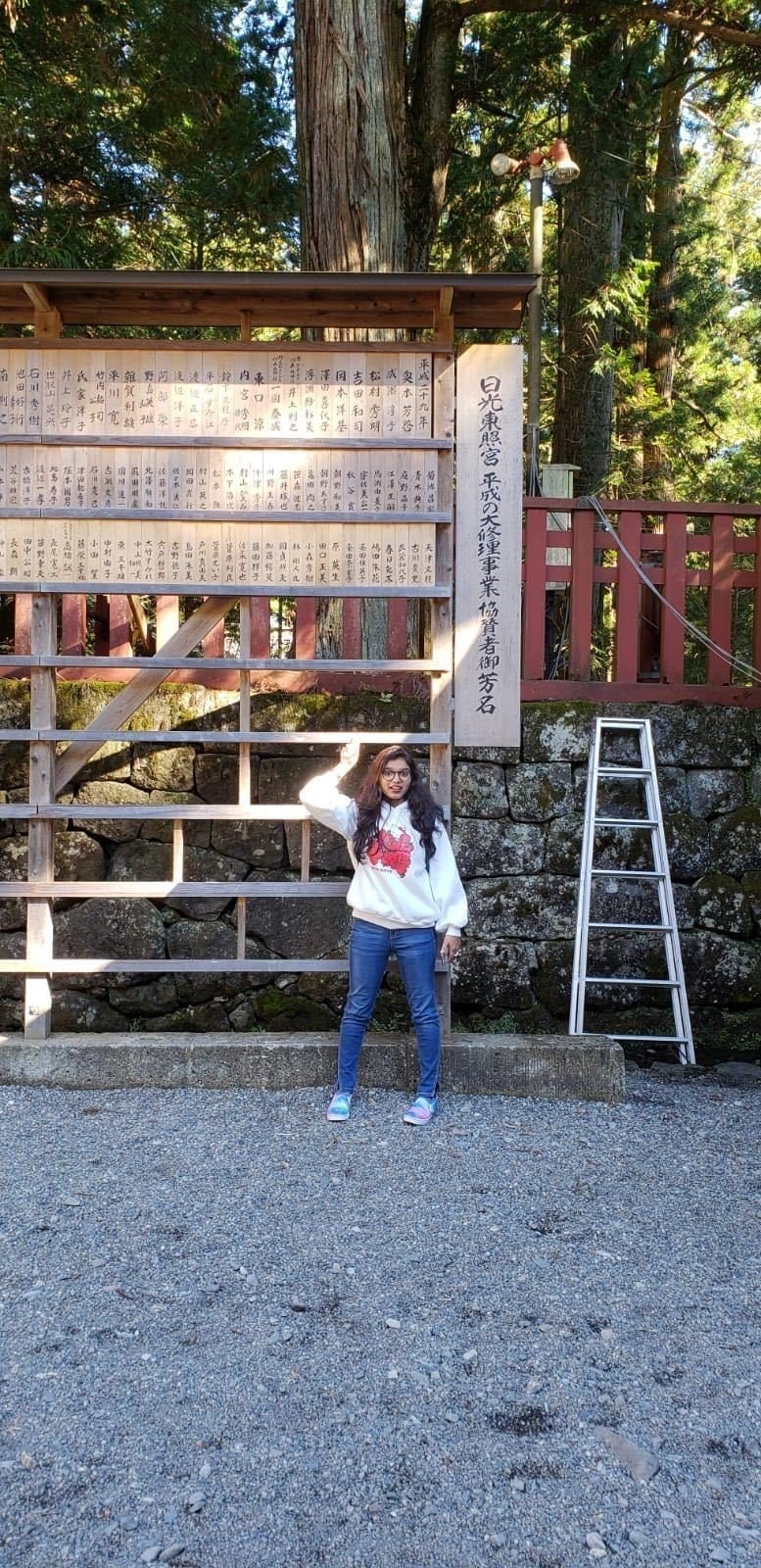
Life in Japan ~ Part 1
नमस्ते, 初めまして, Hello!!!
In today’s blog, I want to discuss the difficulties I faced initially in Japan. Everybody has their own struggles and own challenges when you start your life out of your comfort zone. After living for almost 2 years in Japan I think I and most people have initially struggled mostly because of the following things.
今日は、日本で暮らしている中で直面するであろう、様々な「苦労すること」について話したいと思います。母国から離れて一人で異国に住んでいると、もちろん色々な苦労に直面することになります。私が日本に2年近く住んできた中で感じた苦労について、今日はお話させて頂き、何かの役に立てていただければと思います。
1. The language barrier:
Even if you speak Japanese well, doing all your work in Japanese can be a strain. And if you don’t speak Japanese, you’ll find that there is always information that is not easily accessible. Your Japanese colleagues will likely also be struggling with a language barrier, which can sometimes lead to them thinking it’s not worth the effort to try and communicate. This might be the lamest example but this happened with me. The Japanese language have some contextual phrases like “Daijyobu desu” used with several meanings like “Yes I want it” or “No I’m fine.”When I visited a convenience store, the staff asked me if I wanted a bag and as per my knowledge. This word means “Yes”, so I said “Daijoubu desu”. After hearing my reply, she ended up not giving me because this word also means “No I’m fine.” Like this, there are so many more contextual phrases you will get to know with practice.
言語の壁:
日本語を上手に話すことができても、すべてを日本語で行うのはやはり大変です。 また、日本語を話すことができないと、簡単に情報共有することももちろんできないので、常に気を付ける必要があります。 まずは、自分だけでなく、周囲の日本人の人たちも恐らく同じように苦しんでいることを理解しましょう。でなければ、コミュニケーションすることの価値を見失ってしまいかねません。
例えば、日本には「大丈夫です」という言葉があり、「はい」または「いいえ」などの様々な意味があります。私が実際コンビニに行った際、店員の方に「袋はいりますか?」と尋ねられ、私は「はい」のつもりで「大丈夫です」と答えました。しかし店員さんは「いいえ」のつもりで受け取り、袋を渡してくれませんでした。 このように、日本で生活する中で意味を学ぶことになる言葉がたくさんあります。

2. Indirect communication style:
Until you get used to this style of communication, it may be difficult to pick up on the signals that the people send instead of coming out and speaking directly. This is especially true if you’re from a culture that prefers to “tell it like it is.”
But not every Japanese person uses indirect communication, people are changing. In my opinion, the reason behind this is part of their culture they think of other people before themselves.
I am a person who likes to solve problems by discussing the problem with the team. However, this is my observation that most of the Japanese people don't say their opinion in meetings or most of the time they agree with their bosses without having or stating any opinion.
Sometimes in surveys also there are options like “Yes”, “No” and “I don't know”. In the end, we got the result that most people select “I don't know” and surveys became meaningless time-wasting activity.
遠まわしなコミュニケーションスタイル:
日本人独特の、遠まわしなコミュニケーションスタイル(ストレートに物事を伝えるのではなく、相手の意向を汲み取りながら行うコミュニケーション)に、すぐ慣れるのはなかなか難しいかもしれません。 特に「ありのままをそのまま伝える」文化に慣れ親しんだ人であればなおさらかもしれません。しかし、最近は状況も変わってきていると思います。遠まわしなコミュニケーションをする背景は日本の文化的ルーツであり、「自分より相手のことを考えて話す」からこそだと思います。ちなみに、私はチームと話し合うことで物事を解決するのが好きなタイプです。 しかし、ほとんどの日本人は会議で意見を述べたりせず、ただ上司に同意するだけの場合も多くあります。例えば、何かしらのアンケートで「はい」「いいえ」「わからない」という3つの選択肢を設けた際に、多くの人が「わからない」を選択し、アンケートが参考にならないような結果となることもしばしばあります。
3. Being Vegetarian:
People might think being vegetarian is impossible in Japan, but that is not the whole truth. I agree to some extent it is difficult. When I came to Japan, I was ready to eat meat in case I did not get any vegetarian food options but when I actually went to a restaurant and requested staff to prepare my meal without meat, they did it. I know many restaurants where you can customize your food, and most of the cuisines have vegetarian options like Indian, Korean, Italian, etc. there are several options for vegetarian peoples. There are few restaurants for vegan people also which are increasing day by day. When I started living in japan I did lots of research for vegetarian food where I am able to find a link https://www.vegemap.org/ where they have listed down a different kind of vegetarian and vegan restaurants
ベジタリアンにとっての生活:
日本でベジタリアンが生活することは不可能だと思われるかもしれませんが、実はそうでもありません(確かに難しいことは事実ですが)。日本で暮らし始める前に、ベジタリアン料理の選択肢がなかった場合に備えて、お肉を食べる覚悟もしていました。しかし、日本に来てからレストランで「お肉なし」の調理を頼んでみると、きちんと対応してくれました。それから私は、調理のカスタマイズを頼める様々なレストランを見つけることができました(インド料理、韓国料理、イタリア料理など様々な種類の料理を食べられます)。また、ベジタリアンの多様化に伴い、ビーガン向けのレストランなども徐々に増えてきています。日本に来た後ご飯の為に色々な研修がやりました時はhttps://www.vegemap.org/このURLで見つける事が出来ましら。このURL中に東京にあるベジタリアンやビーガンのご飯がある飲食店の情報が集まってあります。

4. Commute:
Japan has the most advanced transportation system in the world but almost all trains during morning rush hours are too crowded. Riding a car or bike is very expensive and very few people prefer private transportation as public transport is too good. Some train lines such as the Tozai line are so crowded that there are people employed in the morning whose job is to push people inside the train. But I like and admire that trains are always on time and everybody is following rules of getting down first, because of this I am always able to get down on my destination
Apart from this, there is one more thing we should know about Japanese trains: “The last train”. Everyone in general tries to get back to their destination before the last train to avoid the expensive taxi ride and stay at the hotel.
日本での通勤:
日本の交通システムは世界で最も先進的と言えるほどに整備されていますが、それでも朝の通勤ラッシュの混雑はほぼすべての沿線共通です。タクシーなどに乗ると電車と比べて非常に運賃も高く、また電車やバスが十分に整備されているため、多くの人は電車以外の交通手段を好んで使うことはありません。ちなみに、私が使っている東西線では、あまりの混雑で人を車内に押し込むことが多々あります。しかし、日本の列車は常に正確に時間通りの発着で、さらに「電車を降りる人を先に通す」といったマナーは非常に素晴らしいと思っています。そのおかげで、私はいつも目的地で降りることができています。
これとは別に、もうひとつ日本の電車について知っておくべきことは、「終電」です。先ほどの通り、タクシーに乗ると非常に高い費用が発生してしまうので、またホテルに泊まったりすることになるともっと費用がかさんでしまうため、終電までに帰ることをおすすめします。

5. Earthquake:
Japan is part of the Pacific Ring of Fire, which is the most active earthquake belt in the world. Japan accounts for around 20% of earthquakes around the world with a magnitude of 6.0 or more. Around 1,500 earthquakes strike the island nation every year and minor tremors occur nearly every day.
When the first earthquake occurred I was in a little shocked and did not know what to do, but after discussing with my collogues and friends I got to know things you should do when an earthquake occurs. Take shelter, Watch out for falling objects. Check Japan meteorological agency’s (https://www.jma.go.jp/jma/indexe.html) website for earthquake details., most important Follow the examples of the locals. Earthquakes are a part of life for Japanese people, and they have drills for them at school and at work. Furthermore, messages announcing any risk of building structure after earthquakes may be given in Japanese only.
地震:
日本は、世界で最も地震が活発と言われる環太平洋火山帯の一部に属しています。ちなみに、日本は世界で起こるマグニチュード6.0以上の地震のうち約20%を占めています。 毎年約1,500の地震がおきており、軽微な揺れがいつも発生しています。
最初の地震を経験したとき、私は少しショックを受けて何をすべきかわかりませんでしたが、同僚や友人に色々話を聞いていく中で、地震が発生したときにすべきことを色々知ることができました。そこで聞いたのは、「落下物に注意しながら避難所に行くようにすること」と「地元の人たちの指示に従う」という2つでした。ちなみに、日本の気象庁のウェブサイトで地震の詳細(https://www.jma.go.jp/jma/indexe.html) が書いてあるので、詳細はそちらを確認してみてください。地震は日本人にとって生活の一部であり、学校や職場でも訓練を受けています。また、各種お知らせメッセージは、日本語のみで提供されることが大半なので、気を付けて下さい。
6. Hospitals:
In comparison to my home town, hospitals are very expensive. But the good thing is that every company provides health insurance. So in general, we need to pay 30% of hospital charges. There are few hospitals in Tokyo which provide assistance in English but most of them do not have English support unless requested.
Attaching the link which will lead you to English speaking doctors and English coordinates available hospitals in Tokyo, Japan.
(https://www.realestate-tokyo.com/living-in-tokyo/doctors-hospitals/)
病院:
私の故郷と比較して、日本の治療費は非常に費用がかかります。 しかし、日本の会社が従業員のために健康保険を提供しているため、実際に私たちが支払う治療費のうち30%支払うだけで済みます。東京には英語が通じる病院はほとんどないため、注意が必要です。
7. Living by yourself:
When you start living alone, you will get much more time compared to living with your family. At that time you might feel homesick, depressed, thinking about all things in the world which are not even related to your life so avoiding such feelings you should have plans instead of getting down yourself. For me, I love to travel, meet new people, explore new things, cooking so I always make a plan in advance accordingly. But rest assured, you can definitely overcome this when you get used to life in Japan. Make sure to follow your hobby/passion along with your main goal in Japan.
一人暮らし:
一人暮らしを始めると、家族と一緒に暮らすよりもたくさん自分の時間ができます。 その中で、ホームシックになってしまって落ち込んでしまい、自分の人生とは無縁な世界に想いを馳せてしまうことも少なくありません。そうならないように私は、旅行や新しい人との出会い、新しいもの探し、料理など色々な趣味を活かして、常に何か計画を立てます。しかし、これは私だからできることではないので安心してください。日本での生活に慣れてくると、間違いなく孤独に打ち勝つことができるはずです。 日本での生活における目標を立ててみたり、趣味に時間に是非とも情熱を注いでみて下さい。

8. Housing:
I have recently moved out of my old house and I think looking for a new house is really hectic and time-consuming procedure in Japan. If you want to search for an apartment you should start looking very early at least 2-3 months before moving out. Make a list of your preferences regarding locations, rent, initial charges, commute time, size of a house, etc. Meet different house agents and discuss with them gather information about houses that are available according to your preferences. Compare house information you have and make a decision. For making a contract you will need to pay initial charges which are 4-5times of your rent, identification documents, one Japanese contact for an emergency, one guarantor. There are so many house agents who have many vacant houses but unfortunately, most of the houses are not available for foreigners. There are plenty of options available for houses. There is a possibility that one property may have different prices different housing agents If you want a spacious house at an affordable price then you should be ready to commute over a long distance or share your apartment with someone.
住宅:
私は最近、古い家から引っ越しました。新しい家を探すのは、日本では本当に忙しくて時間がかかることだと改めて気付かされました。
新居を探すには、引っ越しの準備なども含めて少なくとも2〜3か月前から下記の流れで早めに事前準備し始めることをお勧めします。
・場所、家賃、初期費用、通勤時間、家の大きさなどに関する好みのリストを自分なりに作成してみます。
・さまざまな不動産会社に会って話しを聞いてみて、あなたの好みに合った家を探してもらいましょう。
・出そろった家の情報を比較し、どこに引っ越すかを決めましょう。
契約の際には、初月に家賃の4〜5か月分の費用、身分証明書などと合わせて、緊急時の日本人連絡先1名、保証人1名を立てる必要があります。
日本には空き家がたくさんありますが、残念ながら、ほとんどの家は外国人の利用が制限されています。家を選ぶ際には色んなことを考えなければいけません。物件によって不動産会社が異なるので、予算感や広さ、通勤距離や同居人の有無など、自分なりにきちんと準備できていると、やりとりもスムーズだと思います。
Japan definitely has helped in growing my skills. Living alone in Japan has influenced my views and personality positively. I will discuss more on this in the next blog. Until then...
日本の生活は間違いなく私のスキルアップにおいて貴重な経験だと感じています。 日本での一人暮らしを通して、様々なプラスの影響がありました。どんな影響を受けたのか、それはまた次のブログで詳しく説明したいと思いますので、乞うご期待下さい。
Bye!!!
Be happy and healthy. 幸せで健康になります様に。:)
この記事が気に入ったらサポートをしてみませんか?
